One day, I was talking to my neighbour and the topics drifted to what she would like to see in Altona. The number 1 item on her wishlist is the moving out of the Mobil Oil Refinery and chemical industries from Altona. I asked her how probable that scenario would be. She thinks the possibility is high. She said there used to be many oil tanks in Port Melbourne, which were subsequently demolished. The Altona Refinery faced closure in 2004 due to rapidly declining Bass Strait oil production, increasingly tougher national clean fuel standard and inability to compete with the big oil refineries in Singapore (Reference 1, 2, 3). The refinery was subsequently saved from closure with ExxonMobil injecting more capital, trimming the workforce and retreating from the export market. However, the same harsh environment remains today.
A combination of the following factors may precipitate the demise of the Oil Refinery:
- Competition from overseas refineries.
- 90% of Bass Strait’s oil has been extracted, the ageing oilfields are in rapid decline and there is no more new large oilfield left in the Bass Strait.
- Competition from new oilfields in other parts of Australia.
- The national clean fuel standard, becoming more and more stringent, leading to increased operating costs for the refinery.
- A carbon price or emissions trading scheme, making the oil refinery no longer commercially viable (Reference 4).
- Moving of Melbourne Port from Swanson Dock to Hastings and Geelong, making it expensive to truck oil over long distances (Reference 5).
- Major accidents or leakages, prompting communities’ concerns and review of environment enforcement measures and socioeconomic cost-benefits.
- A booming Melbourne population increasing the pressure of shifting heavy industries away from prime lands near to City to make way for residential developments.
- With its location around areas with increasingly higher population densities, its proximity to the sea and its open layout, the Oil Refinery becomes a vulnerable target for terrorists’ attacks. In Singapore, the oil refineries are contained and isolated on Jurong Island away from mainland Singapore, where very strict security measures are imposed on people and vehicles entering the Island.
- Change in the political landscape, such as the Greens gaining more power.
If the Altona Mobil Refinery does close down in the future, what do we do with the oil tanks? Imagine The Future Inc. had the answer 14 years ago when it commissioned the architects, David Craven and Philip Snowdon, to develop conceptual drawings showing how the Mobil oil tanks could be transformed into an ecologically and socially sustainable urban village. In this imagined future, the tanks have been decontaminated and retrofitted as homes and work spaces to accommodate an active community of several hundred people from socially and culturally diverse backgrounds.
The tanks that were once filled with oil, are now modified to collect and store rainwater as well as fitted with solar panels to harvest sunlight, creating an environmentally-sustainable village that is self-sufficient in both water and energy.
All the wastes, including grey water and sewage, are recycled on site and used to maintain the private and community permaculture gardens. Many plants in the gardens are endemic species grown for their visual appreciation, as food, for their medicinal properties or to provide habitat for indigeneous birds and animals, such as marsupials. Endangered plants such as the Small Golden Moths Orchid, are rescued from the brink of extinction and now thrives in the restored grasslands that surround this new-age urban village.
Another possible fate of the post-refinery era will be to demolish the refinery site completely to give way to residential developments.
I however have a bold vision for Altona, which I believe is not being proposed by anyone else. I had visited the GlaxoSmithKline Pharmeutical Plant in Singapore, which looks strikingly similiar to an oil refinery, with its maze of interconnecting pipes, pumps, valves and compressors. I wonder whether it is possible to retrofit the oil refinery into a pharmeutical manufacturing facility.
If the Mobil Refinery goes, the downstream chemical industries, including Qenos, which depend on feedstocks from the Refinery will also have to go. In my imagined future for Altona, the oil refinery and chemical industries will replaced by a Science Park, similiar to the Science Park and Biopolis in Singapore.
Right now, lands on both sides of Kororoit Creek Road are under-utilized. Bringing in more chemical industries will be undesirable as these are close to residential areas. A green wedge belt between the chemical industries and residential areas is essential as a safety buffer zone. Substitution of the chemical industry with a low-risk, knowledge-based industry will unlock the economic potential of the vast quantity of land, transforming Kororoit Creek Road into a high technology corridor, flanked by R & D laboratories, companies’ headquarters, entrepreneur startups, universities’ departments, academic hubs, conferencing facilities and residential villages housing higher-density apartments. Due to the non-contaminating nature of this new industry, the safety buffer zone is no longer required and this will further release valuable lands that can be put to productive use.
This technology hub can be home to emerging fields such as biotechnology, medical sciences, nanotechnology, material science, environmental science and infocommunication technologies, in which Victoria has considerable strengths and is strategically positioned to benefit enormously. Victoria urgently needs to groom a knowledge-based economy to substitute its manufacturing sector that is rapidly losing its competitiveness to low-cost overseas production bases.
Melbourne has a large tertiary education sector, which can supply a skilled manpower base to power this technology hub. This will be a vibrant locale, comprised of a highly-educated workforce, attracted to a bayside lifestyle and who loves to visit the nearby Altona and Williamstown beaches during lunch hours and after work. Many will choose to live in Altona, Williamstown or the various residential villages along Kororoit Creek Road. This technology hub will create immense employment opportunities for the southwest growth corridor of Melbourne, similiar to what the Science Park and Biopolis are doing for the western part of Singapore.
The 3 demolished train stations of Mobiltown, Paisley and Galvin on the V-line train tracks between Newport and Laverton, will be resurrected to cater to passenger demand from this thriving technology corridor. V-line trains will no longer run alongside Melbourne metropolitan trains on these tracks as they are diverted to the new Regional Rail Link, connecting Geelong, Ballarat and Bendigo to Southern Cross Station via West Werribee, Deer Park and Sunshine. There will be frequent shuttle bus services between this technology corridor and Altona Beach, which will become a very popular eating out and recreational place.
Whether this vision will materialize or not, would depend on whether the top decision makers in Victoria have the same thoughts as mine. I have accurately predicted more than 10 years ago that casinos will be built in Singapore. It is always good to imagine our future, how we would like it to be and how should we go about achieving it.
Acknowledgements – I wish to express my thanks to:
- Merrill Findlay who allows me to reproduce materials from this web page on the Altona Tank Farm.
- Imagine the Future Inc. – which no longer exists.
- David Craven and Philip Snowdon – the architects who did the conceptual drawings for transforming the tankfarms into an urban village.

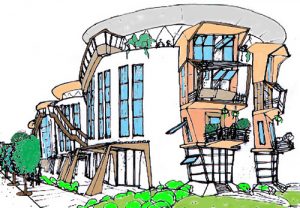
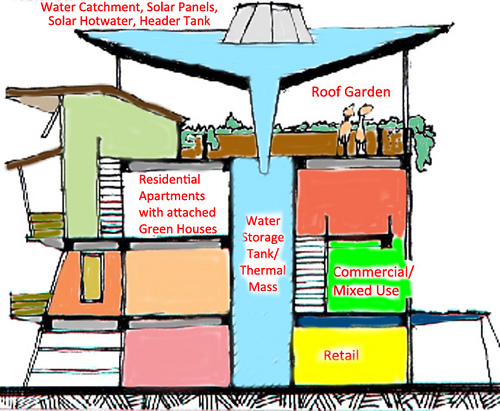
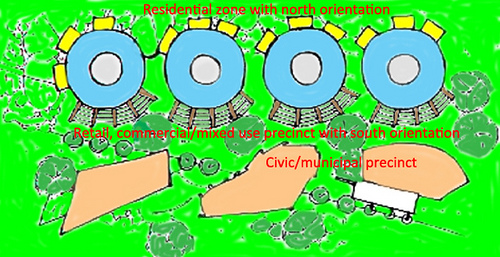
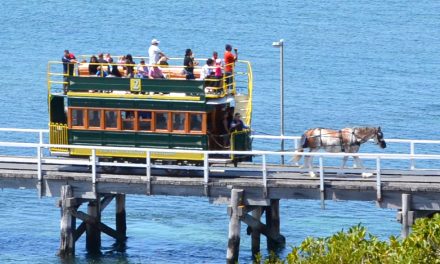
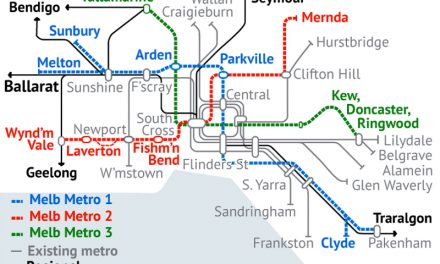
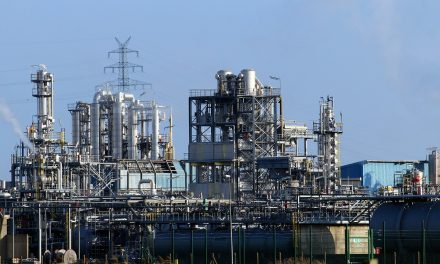
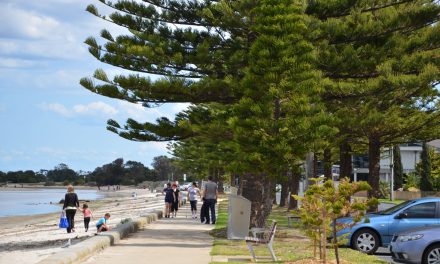
Closure of chemical plants wont advantage the area. They provide massive economic advantage for the local area. The closing of Cabot was a real shame!
Shell's Sydney Clyde refinery to close due to inability to compete with Asia's mega refineries.
http://www.theage.com.au/business/asia-forces-shells-hand-on-refinery-20110412-1dcm9.html
Like your imagination… Hope your vision of future comes true and the south west will get rid of it's stigma and be as livable as the south east!